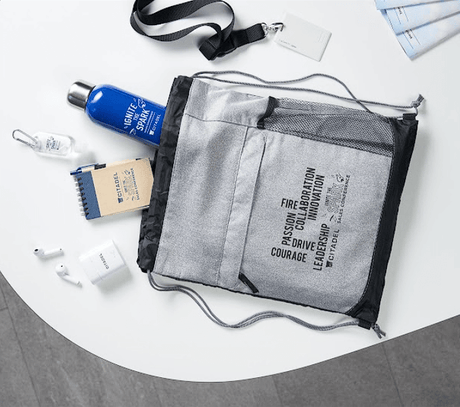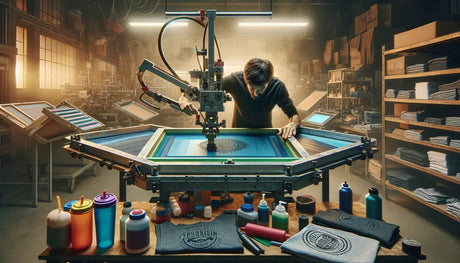
Giftophobia is real! Yes, you read that right. You may have heard of claustrophobia, acrophobia, hydrophobia - even phobophobia which is the fear of phobias themselves. But what is giftophobia? Those shiny wrapped presents, boxes with bows on them, cute cardboard patterning - how could they possibly be causing fear?
Well, giftophobia defines something deeper than just a fear of gifts. Giftophobia - a concept that has been searched for millions of times, only yields a few hits on Google. The meaning of giftophobia is a fear of gift-giving, gifts - the whole process in general. Many giftophobes procrastinate choosing a gift for someone till the last moment, may rely on others to help them choose a gift, dread having to get a gift for someone they perceive as difficult to give to and develop a lot of anxiety about this whole concept. In some situations, this can greatly affect the giftophobe’s relationships with others, their confidence, their social life and just their happiness in general. It may sound dramatic, but it’s true - gift giving is something everyone takes part in at some point in their life. If you’re wondering, “do I have giftophobia”, read further to learn more about this prevalent issue.
“Research shows that giving a bad gift can hurt your relationships.” - BBC
In our current society, gift giving is a fundamental part of many traditions, holidays and industries - it enhances the very relationships that eventually form our society. Relationships between family members, significant others, friends, work colleagues, long-distance acquaintances - even strangers; all the various units of our community participate in gift exchanges at some point or another. Gift giving has a long history in our civilization, some believe that it started with the birth of Jesus and the three wise men. However, it is even seen in nature with animals such as penguins who try to find the perfect pebble to give their partner or crows who leave shiny objects for people who feed them.
How can I tell if I’m giftophobic?
Let’s take a simple test you can take to determine if you're at risk; please answer a few of my questions:
- Do you put off buying a gift until the last possible moment, either the day of or the eve before an event?
- Have you ever given cash or a gift card as a gift?
- Do you dread 'drawing names' at Christmas for fear you'll get someone who's hard to buy for?
- Have you ever said these words? "I don't know what to get, he/she/they already have everything."
- Do you ever delegate your gift buying to someone else?
If you answered yes to 3 or more questions, you are probably a giftophobe. Even one yes answer means you're at risk.
Oh, alright, so it's not a real disease, and to my knowledge it's not even a real phobia. Yet thousands of people seem to dread giving a gift. If you're one of those thousands, I've got some good news I'll share with you in just a minute.
Why do you put off shopping for a gift? Is it because you don't have time or don't know where to start looking? Maybe you're afraid the recipient won't like what you've picked out so you delay choosing anything. Or it could be that you just can't think of the right gift. Wouldn't it be great if you could find one place to shop for every gift-giving occasion that comes along? For every person on your list at Christmas? And what if you could do that from the comfort of your living room? In your pajamas? Sounds great, right? But does it exist? You bet it does and what I'm about to share with you will make you really happy.
Before I answer your questions, let’s look at what the root cause of Giftophobia really is!
What are the causes of Giftophobia?
How can something so common and inherent such as gift giving cause fear and confusion? One of the biggest reasons for this gift giving anxiety is that with the advances in technology, industry and social media - there are so many ideas, products and concepts floating around that some people may have lost touch with what makes gifts special - the feeling!
According to research, it’s not always the most expensive, complicated or trendy gift that makes for a happy recipient. But when we spend hours on social media looking at various product reviews, celebrities using certain products and a plethora of opinions on what would make for the best gift - it is no wonder that giftophobia is so common. With a few taps on their smartphone, that person falls deeper into the spiral of gift giving anxiety and confusion. They might even end up resorting to gift cards, as this is an easy alternative to avoiding confusion. However, this might come off as impersonal and thoughtless, and further reinforce the gift giving anxiety the person faces.
Let’s face a fact, head on, social media has made us less appreciative of small things in life. There is no short of studies and research that show how impatient, picky, and dopamine-addictive social media has made us all. There’s a hit of dopamine at every second, at every tap, and at every scroll. Dopamine - It is a type of neurotransmitter; also known as the “Feel-good hormone” and is strongly associated with pleasure and reward. When you come to associate a certain activity with pleasure, mere anticipation may be enough to raise dopamine levels. It could be a certain food, sex, shopping, or just about anything else that you enjoy.
For example, suppose your “go-to” comfort food is homemade double chocolate chip cookies. Your brain may increase dopamine when you smell them baking or see them come out of the oven. When you eat them, the flood of dopamine acts to reinforce this craving and focus on satisfying it in the future. It’s a cycle of motivation, reward, and reinforcement. Same thing happens when you scroll social media and see a meme from your favorite account - irrespective of whether it’s good or bad or even before reading/watching it - you start to feel a rush of happiness in your body. That’s exactly how social media has trapped us - with those hits - so we spend all our time getting that happiness. And if you don’t take my words for it, see what Facebook executives are saying.
“I feel tremendous guilt,” admitted Chamath Palihapitiya, former Vice President of User Growth at Facebook, to an audience of Stanford students. He was responding to a question about his involvement in exploiting consumer behavior. “The short-term, dopamine-driven feedback loops that we have created are destroying how society works,” he explained. In Palihapitiya’s talk, he highlighted something most of us know but few really appreciate: smartphones and the social media platforms they support are turning us into bona fide addicts. While it’s easy to dismiss this claim as hyperbole, platforms like Facebook, Snapchat, and Instagram leverage the very same neural circuitry used by slot machines and cocaine to keep you and me using their products as much as possible. If you’ve ever misplaced your phone, you may have experienced a mild state of panic until it’s been found. . About 73% of people claim to experience this unique flavor of anxiety, which makes sense when you consider that adults in the US spend an average of 2-4 hours per day tapping, typing, and swiping on their devices—that adds up to over 2,600 daily touches. Most of us have become so intimately entwined with our digital lives that we sometimes feel our phones vibrating in our pockets when they aren’t even there.
While there is nothing inherently addictive about smartphones themselves, the true drivers of our attachments to these devices are the hyper-social environments they provide. Thanks to the likes of Facebook, Snapchat, Instagram, and others, smartphones allow us to carry immense social environments in our pockets through every waking moment of our lives. Though humans have evolved to be social—a key feature to our success as a species—the social structures in which we thrive tend to contain about 150 individuals. This number is orders of magnitude smaller than the 2 billion potential connections we carry around in our pockets today. There is no doubt that smartphones provide immense benefit to society, but their cost is becoming more and more apparent. Studies are beginning to show links between smartphone usage and increased levels of anxiety and depression, poor sleep quality, and increased risk of car injury or death. Many of us wish we spent less time on our phones but find it incredibly difficult to disconnect.
“A study performed by California State University found that individuals that visited any social media site at least 58 times per week were 3 times more likely to feel socially isolated and depressed compared to those who used social media fewer than 9 times per week.”
Should you like to go a bit more deeper, read the next section; if you’re starting to get bored, just skip the next paragraph!

Reward prediction and subsequent dopamine activity: Unexpected rewards increase the activity of dopamine neurons, acting as positive feedback signals for the brain regions associated with the preceding behavior. As learning takes place, the timing of activity will shift until it occurs upon the cue alone, with the expected reward having no additional effect. And should the expected reward not be received, dopamine activity drops, sending a negative feedback signal to the relevant parts of the brain, weakening the positive association.
Now, imagine a whole generation that has unconsciously got addicted to dopamine-hits which comes not hourly or at certain times of the day, but they are available at a finger touch anytime, anywhere for any number of hours - it’s actually infinite; that’s why we keep scrolling through our phone for hours on a Sunday morning and then guess where the time went by. These dopamine-hits are more personalized to an individual than anything else in the world and as a result your friend’s and your home feed are completely unlike, unless you share all the interests and hobbies. That’s because even if you share the same traits, there wouldn’t be 150+ similar interests - that even you aren’t aware of yourself yet - as Facebook has. Like I’ve mentioned a few times in this book; Facebook has at least 150 categories of each Facebook user that it uses to show what individuals love to see. This is also why you also see very targeted ads on your feed. Now, the challenge arises when you try to gift something and make the receiver accept it wholeheartedly and probably also jump of joy. The challenge is that you have to compete against the dopamine-hits from social media and outrun it; because if you cannot then it cannot be a well received gift and a bad gift can hurt your relationship.
This is what leads you and me to get perplexed, overthink, and get into this trap of Giftophobia, without us knowing it. You and I know how bad of an impact a bad gift can create and we are also mindful of what your friend likes, but the fear of giving an unfitting gift traps us; adds up this stress of dopamine and happiness that the gift should cause but also more than difficult to meet the baseline that social media has set. And there’s no way you can beat the algorithms of these social media platforms because they tend to change; every second, every touch; whenever your friend or family uses their phones. They know that your friend or family is depressed, or happy, or travelling, or going through a hard time before you knowing and more than you know. You must be wondering how I can gift then; well, before I answer that question for you, let’s look at some of the effects of Giftophobia.
What are the effects of giftophobia?
Many studies have shown that getting the “wrong” gift for someone can cause rifts in our relationship with them as they might think they are not as special or profoundly thought of. According to Elizabeth Dunn, a psychology professor at the University of British Columbia in Canada, “Choosing the wrong gift can be kind of risky for relationships because it says you don’t have anything in common,“. Undesirable gifts may even negatively influence the recipient’s view of a relationship’s future potential. This concept definitely adds a lot of pressure, trying to make sure you get the “right” gift causes a lot of anxiety, thus the procrastination and asking others for help. In general, there is a lot of pressure around gift giving, if someone gives us something nice - then we feel as if we’re expected to give something equally great or even better in return which further adds to overthinking or anxiety related to choosing an appropriate gift. Research has even found that someone who already has increased anxiety about gift giving, is more likely to be embarrassed or negatively impact their relationship because of this overthinking.
Giftophobia is a real issue that is not addressed even though it is so common. It’s getting even more common now as people get busier with their lives, not having as much time to make gifts or reflect on what makes a great gift. Let’s look at a couple of scenarios. It’s one of your friend’s birthdays, all your other friends are going to come to the party and see what you got for that friend as well. You really want to maintain a good friendship with that friend and have a good impression on everyone else, especially because all these friends have really been there for you. While trying to find something meaningful, you go on Amazon or the mall and see a hundred replicates of the same thing - nothing really says “this is for you”. Undoubtedly, this keeps adding to your confusion about what to get, with the mounting pressure of getting something perfect - and you find yourself lost and in fear of gift giving. Another example is that of Christmas time and Secret Santa; you pick the name of a colleague you don’t really know, this could be the time to start a good friendship with them. But if you get something they don’t like or appreciate - that could negatively affect the friendship before it even starts. Once again, you are faced with the anxiety and confusion of gift giving.
It’s ironic that in today’s world, with the increased accessibility of online shopping, internet browsing and social media - Giftophobia is an even greater issue. Maybe the root of the problem lies in the social network infrastructure that we live in today which keeps hitting you with dopamine-hits or we are underestimating the role of human psychology that machines cannot understand; not until now at least. As machines cannot process the real humanly gifts like feelings, emotions, experience, and sentiments, there lies the opportunity for us to educate ourselves and outrun these algorithms. So why, wait, let’s look at “how human psychology plays a bigger role in gifting - than we could have ever thought”.











